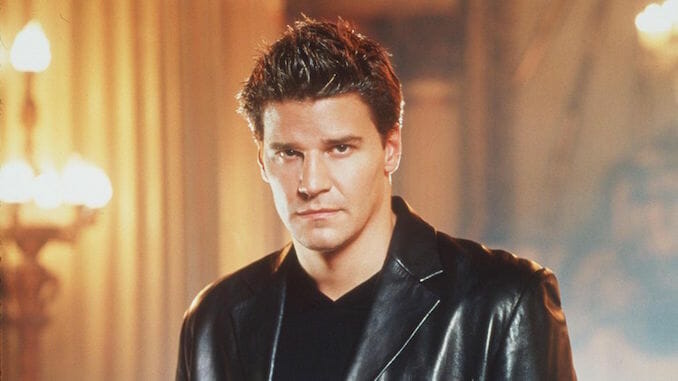It Still Stings: Angel‘s Lost Redemption
Photo Courtesy of The WB
Editor’s Note: TV moves on, but we haven’t. In our feature series It Still Stings, we relive emotional TV moments that we just can’t get over. You know the ones, where months, years, or even decades later, it still provokes a reaction? We’re here for you. We rant because we love. Or, once loved. And obviously, when discussing finales in particular, there will be spoilers:
![]()
Back in the relative yesteryear of 2004, when television was released an hour at a time, week by week, year by year, and news about our favorite shows dripped down in a similar fashion, Angel’s cancellation took us all by surprise.
-

-

-

-

-

-

-

-

-

-

-

-

-

-

-

-

-

-

-

-

-

-

-

-

-

-

-

-

-

-

-

-

-

-

-

-

-

-

-

-








































